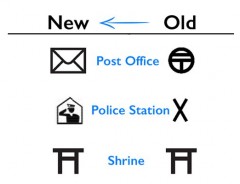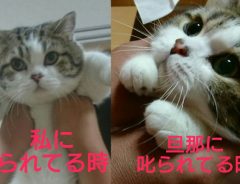Related Article
-

Japan’s Intriguing New Dessert Looks Like Moss But Tastes Like Matcha
-

Mewgaroo Cat Hoodie Is Now Available For Fat Cats!
-

Japan Finalizes Friendlier Signs To Foreigners, Leaves Manji Symbol (卍) Unchanged
-

This Scolded Cat Knows Just When To Make Use Of Her Wide-Eyed Gaze
-

Cuddle up with super derpy Kiwi pretending to be a Kiwi fruit keychain and plushie
-

Hamster in Japan loves nothing more than his lucky heart-shaped cucumber



It's an understandable given that studies in foreign languages begin with basic and formal sentences to establish familiarity with language rules and structure (as one Japanese student was finally rewarded for after learning "the most useless English sentence" ever), but with nuances like regional dialects and slang, the divide between textbook and real world can be a bit jarring when students step outside the classroom.
As many Japanese-studying anime fans will attest to, Japan is no different. Twitter user and freelance bartender/writer @phie_hardison recently posted a short, but accurate video detailing the differences titled "the Japanese taught at Japanese school vs. the Japanese Japanese people actually speak".
Ohayou gozaimasu (“Good morning.”) =====> ozasssu
Konnichiwa (“Good afternoon.") =====> chiwaaa
Arigatou gozaimasu (“Thank you.”) =====> azassu
Yoroshiku onegaishimasu (“Please.”) =====> yoroshisaasss
Otsukaresama Desu (“Thank you for your hard work today.") ====> esssuu
The shortening of formal phrases to quicker and casual forms is obviously not a unique phenomenon to the Japanese language (s'up?), but their common and almost formulaic use in the workplace, particularly around colleagues who become closer over time, leads them to be said in such a manner. On commenter jokes that "high level" practitioners of language shortening can reduce all of the above phrases into a simple "ssu" sound.
Of course "actual" doesn't mean "recommended", at least not until some familiarity is established, so as boring as it may be, it's best to use your textbook as a guide and branch out into more colloquial speak when the situation calls for it.